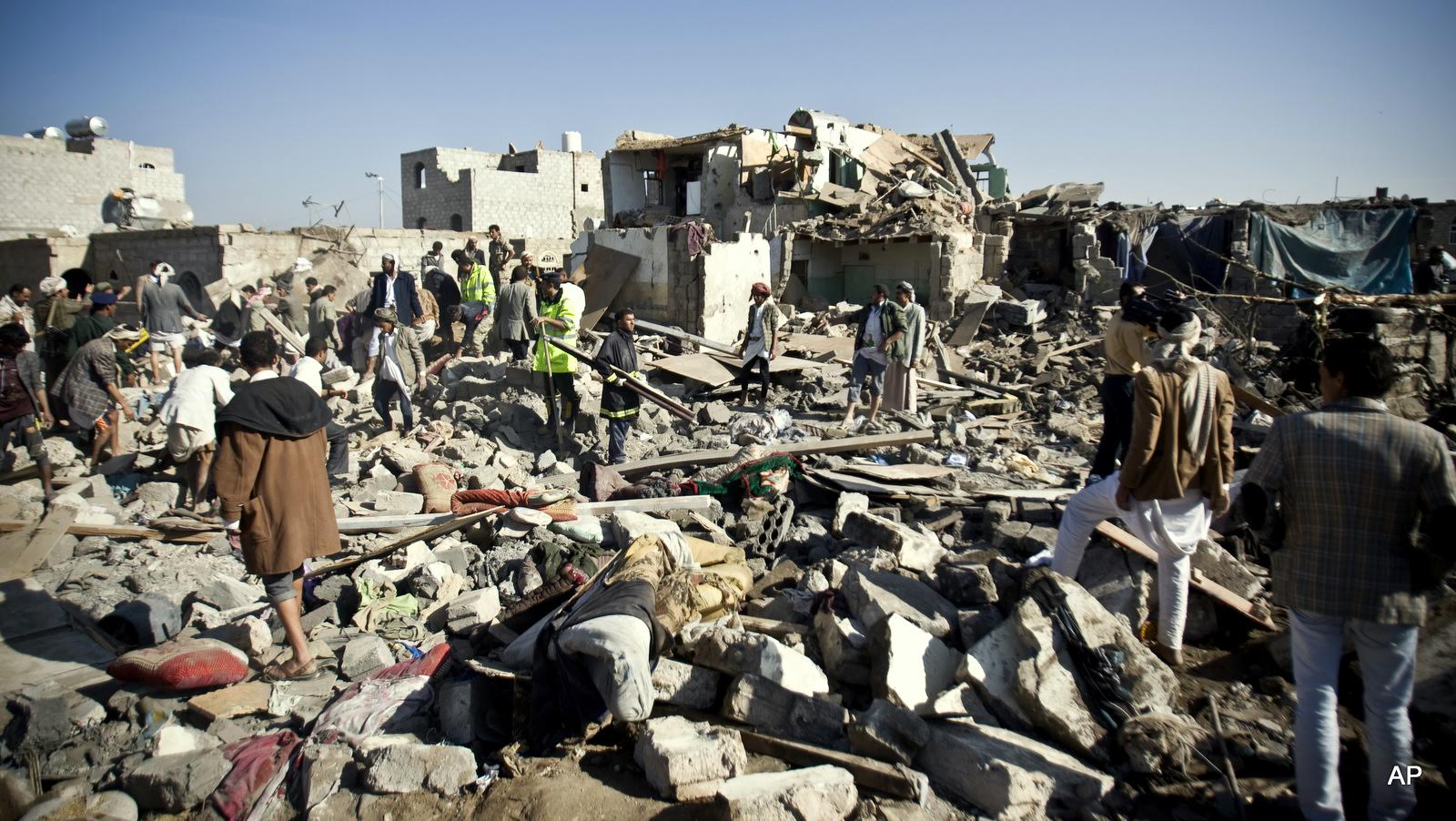
Why the US Must Act Now to Prevent Disaster
By Alissa Wang
[divider]
[dropcap]A[/dropcap]mid the chaos of the Syrian Civil War, ISIS attacks, and the refugee crises in the Mediterranean, another equally important crisis in the Middle Easy has been largely overlooked by the media – the implosion of Yemen into both a civil war and a proxy war between Saudi Arabia and Iran. The chaotic dissolution of Yemen holds consequences not just for the state itself, but also for the relationship between the United States (US) and Saudi Arabia, a major regional ally. The US must toughen its policy towards the Saudis in order to prevent the conflict from escalating past a point of no return that jeopardizes American interests and security.
The current struggle in Yemen began in March 2015, when then-President Abd Rabbo Mansour Hadi was deposed in a coup by Shia Houthi rebels supporting ex-president Ali Abdullah Saleh. Following the coup, Saudi Arabia militarily intervened with airstrikes and ground offensives on behalf of Hadi, with the intention of crushing the rebellion and reinstituting Hadi. The Saudis intervened at the head of a large coalition of Arab states, which included the United Arab Emirates, Egypt, Qatar, Bahrain, and Kuwait. The US has buttressed this coalition with arms and intelligence. The coalition, along with fighters loyal to Hadi, has managed to push the Houthis, sponsored by Saudi Arabia’s Shia regional nemesis Iran, out of five southern provinces, but continues to struggle to gain control of northern territories. The coalition forces are unlikely to succeed in this campaign because they lack familiarity with the rough, mountainous terrain and are relying on relatively inexperienced troops.
Regrettably, the Saudi effort has been characterized by numerous atrocities. Since March 2015, their warplanes have been bombing civilians and destroying civil infrastructure; the conflict has now claimed more than 8,000 lives. The Saudi-led coalition has instituted a naval blockade of Yemen, preventing hundreds of thousands people from receiving food, medicine, and other forms of humanitarian aid. A recent Saudi-led cluster bombing of residential areas in the critical city of Sana’a has led Human Rights Watch to condemn Saudi actions as “serious violations of the laws of war” that amount to a “war crime.” Nonetheless, Saudi Arabia has shown no signs of de-escalating; this may tempt Iran into engaging further in the conflict.
There is thus a very real risk of both Saudi Arabia and Iran escalating their activity in Yemen, putting the US in a difficult position. American President Barack Obama is both intent on maintaining the semi-cooperative relationship with Iran that has been so painstakingly constructed during and after the passage of the Joint Comprehensive Plan of Action completed last October and is also seeking to repair the relations with the Gulf allies, including Saudi Arabia, that frayed when the deal was struck despite their opposition. What is the best course of action that the US should pursue?
At the very least, the US must stop condoning the military excesses of the Saudi-led coalition by scaling back its assistance in the form of bombs, missiles, and intelligence. If not, the conflict will escalate to the point (if it has not already) where the US becomes complicit in Saudi atrocities, putting it in a weaker position to coax Iran into rectifying its own human rights abuses. Perpetuating the status quo will also embolden an increasingly belligerent Saudi Arabia, which is becoming more comfortable with using force to achieve its political goals – goals that the US doesn’t always share. Continuing to fuel the Yemeni conflict with arms support will also perpetuate the chaos on the ground that is creating a fertile breeding area for anti-American insurgents like al-Qaeda in the Arabian Peninsula (AQAP).
The US, of course, always has a duty to support its allies. But in this case, continuing to provide the level of support that the US currently provides to Saudi Arabia will drag the country into a worsening conflict that may later force the US to make even tougher decisions about its relationship with the Saudis. Rather, the US should use its considerable influence now through reduced military assistance and diplomatic pressure to encourage Saudi Arabia to act with more restraint. Otherwise, the US will watch the conflict in Yemen continue to spiral towards utter disaster.
Alissa is a freshman in Morse College. You can contact her at alissa.wang@yale.edu.